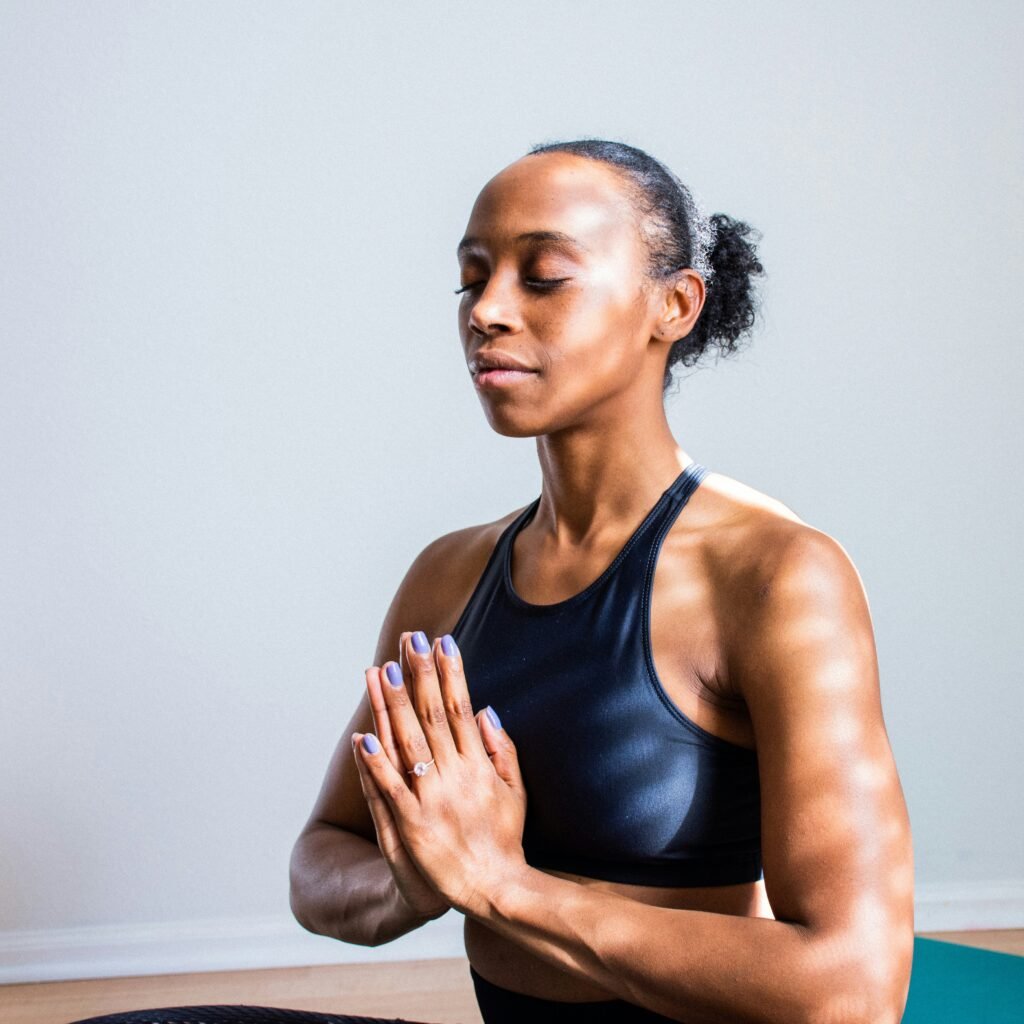Have you ever wondered about the difference between health and fitness? Let’s explore the distinctions between these two terms and how they play a crucial role in your overall well-being.
Understanding Health and Fitness
Health and fitness are often used interchangeably, but they actually refer to different aspects of our well-being. Health encompasses your overall physical, mental, and social well-being, while fitness is more focused on your physical attributes such as strength, endurance, and flexibility. Understanding the difference between these two concepts can help you make informed decisions about your lifestyle choices.
Health: What Does It Really Mean?
Your health is your most valuable asset. It refers to the state of your physical, mental, and social well-being. Being healthy means that you are free from illness or injury, mentally sound, and able to maintain positive relationships with others. Physical health includes factors like nutrition, exercise, and sleep, while mental health involves your emotional well-being and ability to cope with stress. Social health pertains to your relationships and interactions with others.
When you focus on maintaining good health, you are investing in your overall quality of life. Making healthy choices such as eating a balanced diet, exercising regularly, getting enough sleep, and managing stress can have a significant impact on your well-being. It’s important to prioritize all aspects of your health to lead a fulfilling and vibrant life.
Fitness: Beyond Just Physical Strength
While health encompasses various dimensions of well-being, fitness specifically relates to your physical abilities and attributes. When you are fit, your body is strong, agile, and capable of performing physical tasks efficiently. Fitness includes components such as cardiovascular endurance, muscular strength, flexibility, and body composition. It’s not just about how much you can lift or how fast you can run, but also about how well-rounded your physical abilities are.
Maintaining fitness requires regular exercise and physical activity. Engaging in activities like strength training, cardio workouts, yoga, and stretching can help you improve your fitness levels. Each component of fitness plays a unique role in enhancing your overall physical capabilities. Striving to be fit allows you to lead an active and fulfilling life, where you can pursue physical challenges and enjoy various activities with ease.

The Relationship Between Health and Fitness
While health and fitness are distinct concepts, they are interconnected and influence each other significantly. Your level of fitness can impact your health, and vice versa. When you are physically fit, you are more likely to experience positive health outcomes. Regular exercise and physical activity can improve your cardiovascular health, strengthen your muscles, and enhance your flexibility, contributing to overall well-being.
On the other hand, good health provides a solid foundation for achieving fitness goals. When your body is nourished, rested, and free from illness, you are better equipped to engage in physical activities and pursue fitness objectives. Prioritizing both health and fitness allows you to optimize your well-being and lead a balanced lifestyle. Finding a harmonious balance between these two aspects ensures that you are taking care of your body, mind, and spirit.
How Fitness Contributes to Overall Health
Physical fitness plays a crucial role in promoting good health and preventing chronic diseases. Regular exercise has been shown to reduce the risk of various health conditions, including heart disease, diabetes, obesity, and certain types of cancer. By engaging in physical activity, you can improve your cardiovascular health, strengthen your immune system, and enhance your overall quality of life.
Fitness also supports mental health by reducing stress, anxiety, and depression. Exercise releases endorphins, which are chemicals in the brain that act as natural mood lifters. Regular physical activity can boost your mood, improve your cognitive function, and enhance your mental well-being. By staying active and fit, you are not only benefiting your physical health but also supporting your mental and emotional wellness.
The Role of Health in Achieving Fitness Goals
A strong foundation of good health is essential for reaching your fitness goals. When you prioritize your health by eating nutritious foods, staying hydrated, getting enough sleep, and managing stress effectively, you set yourself up for success in your fitness journey. Proper nutrition provides your body with the fuel it needs to perform well during exercise and recover optimally afterward.
Maintaining good health habits also reduces the risk of injuries and setbacks in your fitness routine. When you take care of your body by addressing any existing health issues, you can prevent complications that may hinder your progress towards your fitness goals. By making your health a priority, you are creating a solid framework for achieving and maintaining optimal fitness levels.

Making Informed Choices for Your Well-Being
Navigating the complexities of health and fitness can be overwhelming, but knowledge is power when it comes to making informed decisions about your well-being. By understanding the differences between health and fitness, you can tailor your lifestyle choices to meet your individual needs and goals. Whether you are focusing on improving your health, enhancing your fitness, or striking a balance between the two, being aware of the distinctions allows you to take proactive steps towards a healthier and happier life.
Setting Realistic Goals for Health and Fitness
When setting goals for your health and fitness, it’s essential to be realistic and specific. Identify what aspects of your health you want to improve and what fitness goals you want to achieve. Whether it’s eating more vegetables, running a 5k, or increasing your muscle strength, setting clear objectives helps you stay motivated and track your progress.
Break down your goals into manageable steps and create a plan for how you will achieve them. For example, if you want to improve your cardiovascular fitness, you could start by walking for 20 minutes a day and gradually increase the duration and intensity of your workouts. Small, actionable steps lead to long-term success in both health and fitness endeavors.
Incorporating Healthy Habits into Your Routine
Building healthy habits is key to maintaining good health and achieving fitness goals. Consistency is key when it comes to making positive changes in your lifestyle. Whether it’s meal prepping, scheduling regular exercise sessions, or practicing mindfulness, incorporating healthy habits into your daily routine ensures that you are taking care of your body and mind consistently.
Make small changes gradually and focus on building habits that are sustainable in the long run. For example, if you want to eat healthier, you could start by adding more fruits and vegetables to your meals and reducing your intake of processed foods. Over time, you can experiment with new recipes, try different types of exercise, and find what works best for you in terms of maintaining a healthy lifestyle.
Listening to Your Body and Mind
Your body and mind are powerful indicators of your overall well-being. Paying attention to how you feel physically, emotionally, and mentally can help you make informed decisions about your health and fitness. If you experience pain, fatigue, or stress, it’s essential to listen to your body’s signals and address any issues promptly.
Rest and recovery are just as crucial as exercise and activity when it comes to maintaining optimal health and fitness. Your body needs time to recuperate and repair itself after physical exertion. Prioritize sleep, relaxation, and self-care to support your body’s natural healing processes and prevent burnout. By tuning in to your body’s needs, you can avoid injuries and setbacks while maximizing your performance and well-being.

Conclusion: Striking a Balance for Holistic Well-Being
In conclusion, health and fitness are distinct yet interconnected aspects of your well-being. Understanding the differences between these two concepts allows you to make informed choices about your lifestyle and prioritize your physical, mental, and social health. By focusing on maintaining good health and improving your fitness levels, you can achieve a balanced and fulfilling life that supports your overall well-being.
Remember that health is the foundation on which fitness is built. Taking care of your body, mind, and spirit through healthy habits, regular exercise, and positive relationships is crucial for achieving optimal fitness levels and overall well-being. By making informed choices, setting realistic goals, and listening to your body and mind, you can create a sustainable and holistic approach to health and fitness that enhances your quality of life and longevity. Your journey towards a healthier and happier you begins with understanding the difference between health and fitness and taking proactive steps towards a well-rounded and fulfilling lifestyle.